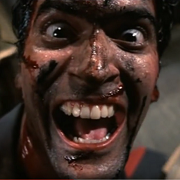|
Quelle surprise, I think 4E took two big steps towards solving the "healing dilemma" in a D&D-esque game. The first one is that it broke from the idea that the Cleric is the healing/support class rather definitively with the Warlord (oh hey, that guy again). The "someone has to play the Cleric" problem is a weird one, because the thing is that there are people out there who genuinely do love to play the support guy...being the healer isn't some universal punishment or hazing ritual you have to put the new guy in the group through, some people really do want to be the guy who rushes to the rescue or helps another party member be all that they can be. But D&D traditionally wants to lock that player into a single concept, "god-botherer with a mace," and not everybody who wants to play the healer/support guy wants to be that. So 4E's developers said "hey, okay, would you like to be a martial tactician who restores morale and inspires people and does all kinds of crazy tactical plans and poo poo? How about a Bard that doesn't suck, we've got that too. Or a Shaman? Artificer? What's your poison?" By the time 4E stopped getting any real support there were something like ten class choices just for people who wanted to play the healer/support guy (Ardent, Artificer, Bard, Cleric, Runepriest, Shaman, Warlord, and then the Sentinel Druid, Skald, and Warpriest sub-classes). Instead of telling people who like that sort of gameplay "here's what you're stuck with," they actually gave those folks a growing and well-supported selection of options to choose from, and that's always a welcome thing. The second step is that they broke from the idea that you could heal or do something else and instead made a system where you could heal and do something else. Some people complained that by letting Leaders heal and have a standard action too that WotC had taken away the tactical considerations of combat healing, but those people are dumb and also wrong. "Heal or attack" is a tactical consideration, but it's not the only kind. In 4E your Leader has a limited number of heals per combat starting at 2 in the Heroic tier. You have 2 Healing Word/whatevers to spread around 4-5 people for an entire fight. That's your tactical consideration...you have to play triage because you can't simply spam Cure Light Wounds over and over. Okay, so that's the tactical element covered, but why else does this make playing the healer a more enjoyable experience? Because by allowing Leaders to toss out heals and to other things as well it turns the healer role from a reactive one into a proactive one as well. A healer constantly having to give up their regular action to dump more hitpoints into the other party members' gas-tanks is having to spend all their time putting out fires...they are constantly having to react to what's happening. A healer who has the freedom to do other things than that, though, can take a proactive approach to helping the party as well. They can add their own focus-fire to help take down troublesome enemies. They can provide a well-placed buff to help another party member avoid getting hit in the first place or to boost their damage so they bring the group closer to victory. It's sort of like that whole "an ounce of prevention is worth a pound of cure" thing applied to stabbing goblins in the face. Just because people like to play healer/support types doesn't mean they like being solely reactive, but a lot of D&D traditionalists seem to really be attached to that idea, that the Cleric's job is to act as a mobile CLW dispenser and maybe hit things with a mace (except in 3.X where poo poo got so hilariously skewed that if you played a Cleric and spent any of your time restoring hitpoints then you were a moron). Next is...kinda sorta approaching these concepts, but like a lot of things it's really nebulous and hard to tell which way it'll fall. They've indicated that Clerics won't be the only classes to be able to restore hitpoints, citing Bards, Druids, and Paladins, though of course the Warlord seems proper hosed at this point and we don't know exactly how good these other classes will be at combat healing compared to Clerics. The last time I did anything with the Next playtest Clerics did have some sort of "totally not a minor action we swear" healing ability, but they also seem to be going with a "use your spell slots to cast CLW" approach too so I guess my answer to the question of "do I think they're going the right way with healing in Next" is a resounding ehhhhhhhhhhhhh trending towards "not really as well as they could be considering these guys draw a paycheck for this poo poo."
|
|
|
|

|
| # ? May 11, 2024 10:30 |
|
Kai Tave just said a lot of what I was going to say about healing, especially the part about 4e healing being "healing and..." which is extremely appealing. So instead of talking about the mechanics, I'll talk about what finally sold me on 4e, which is a related thing. See, my group stuck with 2nd edition. Not for any grognardy reasons, but we enjoyed the game, we were all students 1-2 years out of high school, nobody felt like dropping the money on the books (we're in Australia, I remember the 3e box costing something like $110 when it came out), and most of all we liked 2e. Note that there's nothing in there about disliking 3e. After a couple of years, we went to 3.5, and it was ok, but nobody wanted to go back down the teenager path of "buy all the expansions", so we stuck with the core rules (which may or may not have made the game better, certainly it prevented some of the more broken combinations). Then 4e came out and while we could all afford it no problems, we weren't gaming that much, we'd all read the "just like WoW" thing (and we already casually played WoW, so...), and when I skimmed the books I didn't see anything too appealing, so we just didn't play it until 2009 or so. I ended up ordering the books online in a bout of drunken "I want to own all the D&D books ever" and then immediately regretting it. But when it arrived, and I read it, one thing almost immediately jumped out at me. It was the first D&D where I can be any of the three characters I'd always, in my head, pictured my PCs as anyway. I can be the sort of fighter who says "Get him to safety, I'll hold the bridge", and is capable of backing it up without any extra houserules or asking the DM if a dude gets past me. I can be the warlord, who's what a fighter has always been in my mind ever since 1st edition - the capable, charismatic sword-wielding leader. Then when I realised that not only was I going to be swordfighting people and throwing out buffs, I was going to be shouting at people and re-invigorating them, my thought was "this might be my new favorite class". But best of all, I can be the Cleric that's been described everywhere else but has never been a thing you can actually do. I can stride into the fray smashing bad guys up with my big hammer and making sure that none of my friends die, and I can do both of those things with a degree of effectiveness that means that nobody will shout at me for wanting to hit an orc in the face, especially now that I can hit an orc in the face so loving hard that I'm apparently telepathically contacted by my god, who says "nice loving mace work, which of your rear end in a top hat friends has a wound that needs closing?"
|
|
|
|
Kai Tave posted:By the time 4E stopped getting any real support there were something like ten class choices just for people who wanted to play the healer/support guy (Ardent, Artificer, Bard, Cleric, Runepriest, Shaman, Warlord, and then the Sentinel Druid, Skald, and Warpriest sub-classes). Instead of telling people who like that sort of gameplay "here's what you're stuck with," they actually gave those folks a growing and well-supported selection of options to choose from, and that's always a welcome thing. You've said it better than I ever could. As a lifelong player of support classes, it's great not to be shoehorned into "armored religious fanatic," and one of the major strengths of 4e was exactly this. Next gave a little bit with the various deities, letting you play the well armored bruiser, the long ranger blaster, etc., but still shoehorns in the religion angle. I can refluff, sure, I'm no stranger to that, but I could also just play another game with better options.
|
|
|
|
Have Some Flowers! posted:Do you guys think they're going the right way with healing in D&D Next so far? No, it's a major step back from 4E in every way. A "healer" is both required and very boring. One idea I tried recently in the Feb design challenge was to give the Cleric an ability usable every turn, for free, that targets an ally, and heals them next turn as long as the Cleric doesn't take damage before then. Combined with a Fighter with strong 4E-style defending abilities, I thought it worked pretty well to encourage interesting decisions for the Cleric and the rest of the party. Because of the delayed effect, the choice of who to target wasn't necessarily obvious. And the "can't take damage" part made healing with that ability difficult, but in a way that could be managed with proper teamwork.
|
|
|
|
Have Some Flowers! posted:What do you guys think about healer mechanics in party-based RPGs? I play healers probably more than any other role in games (MMOs or tabletop) and I think healing mechanics are consistently poorly designed.
|
|
|
|
Have you played a healer in D&D4E? It's balls to the walls fun. e: Oh hey a new page.
|
|
|
|
Splicer posted:Have you played a healer in D&D4E? It's balls to the walls fun. I'm in three 4e PBPs. My characters are a warlord, a warlord|warlock, and a warlord|bard. Suffice to say, we needed a new OP that wasn't done by me.
|
|
|
|
Spoilers Below posted:Next gave a little bit with the various deities, letting you play the well armored bruiser, the long ranger blaster, etc., but still shoehorns in the religion angle. I can refluff, sure, I'm no stranger to that, but I could also just play another game with better options. "You could play another game with better options" could be the D&D Next motto at this point. There's a thread going on at RPGnet right now where the question is put to people "What is D&D Next's 'Big Idea'?" Like, what is the big hook for Next supposed to be, the grand vision or selling point that's driving its design? And the answer is there is none. They seem to basically just be throwing poo poo at the wall to see what sticks, which is kind of an
|
|
|
|
In 4E I've played both a Warlord from 1 to max level (which was straight up a loving blast) and then almost every other leader from 1 to high heroic - mid paragon. The only one I didn't have fun with was the Runepriest. Edit: Which I think is just because the Runepriest was in the same book as the Seeker, and neither were supported or done very well in the first place really. I suppose I should make a statement about how Next shouldn't make unbalanced / unsupported / weak classes like these two, but yeah I won't even go there. goldjas fucked around with this message at 04:19 on Mar 10, 2013 |
|
|
|
I played plenty of 4E as all the various Leader roles, and I have to say that the most exciting things about those classes had to do with their non-healing skills. What I mean is, the healing was the least exciting parts of those characters. Healing Words were usually coordinated with other party members and not really a healer skill so much as a party resource. I want to see a system where Healing is more interesting than that, though I don't have a lot of good suggestions for what that system looks like just yet.
|
|
|
|
Maybe there'd be better, perhaps even more versimilitudinous ways to assess damage rather than the image of the party as bags of luck and/or blood who the bad guys periodically hit with sticks; that said, HP or some similar system, like the health levels in Storyteller, may actually be the best system since it isn't like they came out of a vacuum.
|
|
|
|
|
HP is a perfectly fine system for these kinds of games, I'd almost argue the best. Without HP you tend to either run into Rocket tag or players being almost invincible until X happens where X is what damages your "real" hp (such as wounds or whatever). These two systems can work, but I don't think they'd work very well in the kind of game DnD generally tries to be (although with the advent of next I guess I'm not totally convinced on what that even is anymore). There is a good reason almost every video game ever essentially uses HP(from RPGs to MMOs to Call of Duty), and it's not about realism or because "it's what DnD did!", it's a number that's very easy to balance things like classes, difficulty, weapons, etc. around.
|
|
|
|
Have Some Flowers! posted:I want to see a system where Healing is more interesting than that, though I don't have a lot of good suggestions for what that system looks like just yet. I think 4e had sort of the right philosophy in terms of making "healing" more a secondary reservoir of vitality that anyone could pull from but which Leaders had the easiest time of doing so, and in 4e's case also served as a balance/pacing mechanic across multiple encounters too. It's not the only way of handling it, but I honestly can't really think of better right now, at least inside a D&D-style hit point health mechanic. There are some other ways of applying healing of course; having it a reactive thing as a non-main action is fine, but it could be a response/side effect of more active attacks, which is something you see in some of the action MMOs these days. There's some of this in 4e, though most attacks like that grant temp HPs instead. Honestly, I think dedicated healers as a concept is a horrible thing that needs to die, and that character vitality should either be specific to the character or a party-wide mechanic that everyone has to take some part in, but "healbot cleric" is such an integral part of D&D and fantasy gaming that it's basically impossible to extricate at this point. Nessus posted:Maybe there'd be better, perhaps even more versimilitudinous ways to assess damage rather than the image of the party as bags of luck and/or blood who the bad guys periodically hit with sticks; that said, HP or some similar system, like the health levels in Storyteller, may actually be the best system since it isn't like they came out of a vacuum.
|
|
|
|
Nessus posted:Maybe there'd be better, perhaps even more versimilitudinous ways to assess damage rather than the image of the party as bags of luck and/or blood who the bad guys periodically hit with sticks; that said, HP or some similar system, like the health levels in Storyteller, may actually be the best system since it isn't like they came out of a vacuum. This has been a battle people have been fighting from the very start, but HP's amazing simplicity really is a good thing. There are some really cool health systems people have made out there, but nothing really beats HP when it comes to being easy for new players to grasp and understand more or less fully right off the bat.
|
|
|
|
Asimo posted:"Healing" as a pure mechanical concept is I had a blast playing a healing priest in WoW Cataclysm, but it's obvious that it's impossible to translate those mechanics to a turn based game without turning the healer's turn into a slog for the rest of the group. Asimo posted:Honestly, I think dedicated healers as a concept is a horrible thing that needs to die, and that character vitality should either be [...] a party-wide mechanic that everyone has to take some part in. That's a very nice idea, because I also hate having characters get knocked out of a fight. A player has to just stop playing, it usually makes the fight unwinnable, and it's hard to even run away when you have to lug around two unconscious team mates.
|
|
|
Rexides posted:That's a very nice idea, because I also hate having characters get knocked out of a fight. A player has to just stop playing, it usually makes the fight unwinnable, and it's hard to even run away when you have to lug around two unconscious team mates.
|
|
|
|
|
My homebrew's idea on healing is to have both HP (or whatever, just like HP) and Wounds wait hear me out, I know this is usually bad. You have HP, which measure your stamina, luck, all that good abstract poo poo. You get them all back as soon as you can take a 10 minute break (short rest, whateverthefuck, they're a per-encounter resource is the point). You can also use them (but never your last one) to do special stuff like powering up abilities. Dudes with warlord-like abilities can give you some HP back by shouting encouragment at you. Magic can similarly give you some HP back (it removes your tiredness or replenishes your divine favor or whatever). If you run out of HP, you're Wounded and can't continue fighting. Which is where combat heals come in. If someone restores you to just 1 HP via whatever means, you're back up and in the fight. You can't get yourself back up, it has to be that someone shouts/magics/whatevers you back up. At that point, you're still wounded, and you might be close to dying depending on your number of wounds. Wounds can be healed with rest/treatment (ie, they're a per-adventure resource) or sorta via magic but there's a hard limit on how many wounds you can have fixed up with spells at any given time. You still have to heal up "for real" with treatment and light activities eventually. There's no wound penalties or anything, you're enough of a hero that they don't slow you down. Edit: The healing of wounds is essentially meant to be "adventure's over, tally loot, heal wounds, level up, see you next session", not any sort of concrete "one per week" type thing. Elector_Nerdlingen fucked around with this message at 14:57 on Mar 10, 2013 |
|
|
|
I think part of the problem with HP is that the on/off nature of it is asymmetrical across the encounter. Assuming you are fighting an equal number of enemies, Dungeoneering 101 says you focus fire on one until they're dead, rinse, repeat. On the Monster's side the dead monster almost always stays down, on the Hero side not only will a downed Hero usually be brought up again, but a Hero is much less likely to go down in the first place. Monsters are there to be killed, Heroes are there to be nearly killed. The consequence of this is that if we pretend that each side consists of two, multi-headed, multi-action taking behemoths called Hero and Monster, Monster steadily loses effectiveness across the fight while Hero does not. So Monsters effectively have a sliding scale of HP -> effectiveness while Heroes are pretty much always at 100%. Now, PC/NPC asymmetry is fine, and required in this case for the above reasons, but it needs to be taken into account when you're designing your system, otherwise the fight tends to hit foregone conclusion quite early. Which is, again, fine, assuming your system has some way to account for this other than "Well I suppose they give up or something."
|
|
|
|
Splicer posted:Now, PC/NPC asymmetry is fine, and required in this case for the above reasons, but it needs to be taken into account when you're designing your system, otherwise the fight tends to hit foregone conclusion quite early. Which is, again, fine, assuming your system has some way to account for this other than "Well I suppose they give up or something." Yes, this is a problem I had with 4E. Even though a fight, pretty early on, might obviously not result in defeat or any individual PC deaths, it could require spending more healing surges if I play it out, which could have impact later in the adventure. Also, I actually think "zero HP is out of the fight" is a good thing, as long as combats don't take too long, as 4E ones did. It allows for attrition on both sides, but without actually killing PCs constantly, and makes the combat more tense all the way to the end. I don't think players mind watching the story unfold for a few minutes. And as for making retreat difficult... well, good? I'd rather PC death happen because the others decided to leave a man behind to a pack of worgs, than because I as the DM decided to coup de grace, which was pretty much what it took in 4E, or just because of a random fluke of the dice.
|
|
|
|
Bah... Dup.
|
|
|
|
eth0.n posted:And as for making retreat difficult... well, good? I'd rather PC death happen because the others decided to leave a man behind to a pack of worgs, than because I as the DM decided to coup de grace, which was pretty much what it took in 4E, or just because of a random fluke of the dice. Then there's the fact that you're several hours' travel inside a vast sprawling underground metropolis. How exactly are you going to insert new characters into this? If characters only die every so often then it's not such a big deal; it's not unlikely that you might find an emaciated cleric tied up in goblintown, or a half-mad druid just chilling in the middle of gofuckyourself woods, or everyone just says "gently caress it let's head back to town and grab the first guy we see with a sword". If you have character death every session though then the constant parade of hero-level characters just arsing about in the middle of nowhere is going to get a bit silly, Finally there's the more wishy-washy issue of game continuity. Both the 4E and 3.x systems put a heavy emphasis on individual characters, due to both the general tone and, possibly more importantly, the complexity of character generation. If you're spending almost as long making your character as you are playing him then you really stop getting invested in them. 4E and 3.x just aren't suited to "Oh did Snori and Gori say they were twins? Haha, we're actually triplets - Rori the Dwarf" style play and, in my experience, that kind of thing is actually looked down upon. Basically, how big of a deal character death is has to be proportional to how much input the player has into its occurrence. If losing a character can be pretty drat arbitrary then integrating a new one has to be pretty drat easy. If you want a system where making a new character is a Big Deal then you have to limit character death to times when the player wants them dead (or has willingly and knowingly chosen a potential dead character option over a viable alternative). The sheer effort and complexity involved in making a viable 3.x/4E character means that having people die because a fight went a bit south early on is not really an option. Now, having to retreat so you can rescue them later, or being on <0 health during a retreat means you need serious healing to get back up again, that's different (again assuming the player has some way to participate). e: There's very few "can't"s in game design, they're almost all "yes but"s, but if you don't account for the buts then (poop metaphor). Splicer fucked around with this message at 17:24 on Mar 10, 2013 |
|
|
|
What about removing in-combat healing completely? Make healing something that happens between fights, and during a fight it becomes a question of last man standing wins and gets to patch the rest of their team back up using whatever healing mechanics you want to implement. And make in-combat support all about damage prevention.
|
|
|
|
That works fine, but does run the serious risk of the death spiral, even more so that usual in D&D. If team badguy gets lucky and knocks the tough and/or support guy down, they can then romp around mashing the squishies to death without response, and you get a TPK. basically.
|
|
|
Okasvi posted:What about removing in-combat healing completely? Make healing something that happens between fights, and during a fight it becomes a question of last man standing wins and gets to patch the rest of their team back up using whatever healing mechanics you want to implement. And make in-combat support all about damage prevention. OK, here is the thing about healing: Way back when they were transitioning to 4e, in one of the many podcasts that came out around that time, one of the designers offhandedly mentioned the following anecdote; during one of the bouts of sporadic marketing research they'd done in 3e, they'd asked some people to describe what, to them, had been the most memorable combats their characters had ever been in during the history of their roleplaying career. In the course of listening to these anecdotes, they noticed that many of the most memorable combats tended to follow the same narrative arc: 1. Our party got jumped by powerful monsters. 2. We got hit really hard, and some of our guys fell down. Everything got really tense. 3. We figured out a trick/spell/tactic that let us turn the table on the monsters. 4. We reversed the momentum and won the day. So in designing the 4e combat engine, they built a lot of under-the-hood knobs in place to facilitate the chances of experiencing this narrative arc of combat. They gave both monsters and players sufficient hit points so that combat no longer turned into a game of rocket tag. They set the damage parameters on attacks so that everyone could take 2 to 4 solid hits before falling down. They made the negative hit point pool deep enough, and made healing easy enough, so that PCs, once dropped, could get back on their feet quickly. They designed monsters as puzzle boxes, with situational abilities and vulnerabilities so that the PCs could greatly increase their combat effectiveness by altering their tactics on the fly. This also, incidentally, is the source of one of the more legitimate criticisms of 4e; all of this ended up slowing combat down, because in order to have that narrative arc you need fights to last at least 2-4 rounds, and you need the PCs to be able to make the type of significant choices that can grind turns to a halt. You don't absolutely need combat healing to get that kind of narrative arc, but it really helps. Otherwise, it's not unlikely that step 2, instead of ratcheting up the tension, will just make winning a mathematically impossible death spiral. Ideally, you want a panic button (anyone who has tanked in an MMORPG knows what I mean), and combat healing is one of the most tried and true methods.
|
|
|
|
|
Also, this is the best recipe for Chicken and Waffle Sandwiches: 1 Rotisserie Chicken Several waffles Sliced Havarti cheese 2-4 tart green apples Butter Optional: Mayonnaise Maple syrup Toast and butter the waffles to use as bread. Carve the rotisserie chicken and apples into thin slices. Pile chicken and apples on one waffle, covering with cheese slice to melt. Spread mayonnaise and/or syrup on other waffle if desired, then use it to sandwich the chicken. Serve with green beans, drumsticks and wings.
|
|
|
|
|
Old Kentucky Shark posted:Also, this is the best recipe for Chicken and Waffle Sandwiches: I will always love you for coining the phrase Aggressively Hegemonizing Ursine Swarm, but that recipe is an emetic in text form.
|
|
|
|
palecur posted:I will always love you for coining the phrase Aggressively Hegemonizing Ursine Swarm, but that recipe is an emetic in text form. Man, if that recipe makes you wanna throw up I don't know what to say. Compared to the internet's usual deluge of BACON AND DOUBLE CHEESEBURGERS ON A PIZZA WRAPPED IN SAUSAGE concoctions that sounds downright sedate. And tasty too, actually. I would probably forgo the mayonnaise myself, though.
|
|
|
palecur posted:I will always love you for coining the phrase Aggressively Hegemonizing Ursine Swarm, but that recipe is an emetic in text form. Given the amount of grease involved, it's actually more of a laxative, but Chicken and Waffles is seriously loving delicious.
|
|
|
|
|
Does anyone actually want to roleplay clerics. My problem was always that they dint sound fun to roleplay.
|
|
|
|
Old Kentucky Shark posted:Given the amount of grease involved, it's actually more of a laxative, but Chicken and Waffles is seriously loving delicious. Sweet things and meat don't go together. Pineapple on ham is an abomination, and so is maple syrup on chicken, or mayonnaise on absolutely anything.
|
|
|
|
vuk83 posted:Does anyone actually want to roleplay clerics. My problem was always that they dint sound fun to roleplay. Honestly? I don't mind the idea of doing it. It's usually only about as fun as you can find interesting things to do/say about the fantasy religion in question, but I don't have some kind of aversion to them. But neither do I want to play them all the time, nor do I necessarily want them to be a vital component of a well-heeled fantasy adventurer band. Being the guy who kicks rear end for the lord and hands out succor with one hand and righteous fury with the other can be fun, but so's being the guy who deals in battle plans and steely determination and MAYBE SOME YELLING, I DIDN'T TELL YOU TO TAKE A BREAK SO YOU'D BETTER GET BACK TO KILLING OR ONCE THESE ORCS ARE DEAD YOU'LL HAVE TO DEAL WITH ME or the guy who can insult someone so hard that they die of being sick burned or etc. etc. etc.
|
|
|
|
vuk83 posted:Does anyone actually want to roleplay clerics. My problem was always that they dint sound fun to roleplay. The Wisdom-Spouting Old Hermit or the Fanatical Religious Hothead are perfectly good templates for a Cleric's personality, and either can be fun with a good group. Also, I need someone to give me a recipe for the "girliest" drink you've yet seen. Something eye-searingly neon and soul-crushingly sweet in a tall glass with a paper umbrella, preferably.
|
|
|
|
palecur posted:Sweet things and meat don't go together. Pineapple on ham is an abomination, and so is maple syrup on chicken, or mayonnaise on absolutely anything. Look at how wrong you are. Just look at it. Sweet and savory can easily go together, it just takes a little effort. Cherry-glazed pork loin, for instance, is amazing. As is a brown sugar/soy sauce/garlic/crushed red pepper marinated flank steak. The list goes on; not every meat is good with sweet, and you don't want sweet meatstuff every time you go for a protein, but they can easily compliment each other. vvv Eh, I don't mind so much; it's not my thing, but if you like it go for it. But saying that sweet and savory don't go together? That's just kind of silly. Darwinism fucked around with this message at 22:17 on Mar 10, 2013 |
|
|
|
Ham and pineapple is the edition war of pizza. Nobody is ever neutral on it...they either love it or hate it and want to punch you in the face for suggesting it.
|
|
|
|
Good ham and pineapple with a little chili sprinkled on top of pizza is good. My problem is i really want to play 4e but my group hates it. Is there any good news for a d&d4e fan in next?
|
|
|
|
vuk83 posted:My problem is i really want to play 4e but my group hates it. Is there any good news for a d&d4e fan in next? As far as I can tell the only good news is that you can keep playing 4E.
|
|
|
|
vuk83 posted:Does anyone actually want to roleplay clerics. My problem was always that they dint sound fun to roleplay. I like playing clerics and other types of religious characters. I like coming up with tenets and theologies for weird fantasy deities (one of the reasons why I like FR's god for every little thing pantheon), and I don't think you need to play them as fanatics or zealots. Also, the chicken in chicken and waffles is supposed to be fried.
|
|
|
|
vuk83 posted:My problem is i really want to play 4e but my group hates it. Is there any good news for a d&d4e fan in next? Between Next not coming out for another year or so and Next looking like a hot mess, my advice to you is see about getting involved in a 4E play-by-post or Roll20 game.
|
|
|
|
PeterWeller posted:I like playing clerics and other types of religious characters. I like coming up with tenets and theologies for weird fantasy deities (one of the reasons why I like FR's god for every little thing pantheon), and I don't think you need to play them as fanatics or zealots. I particularly like how the backstory for Invokers lets you play someone who just stumbled across a fragment of divine power and is, essentially, drafted into divine service, much like The Secrets of Isis and other representatives of the 'intrepid archaeologist touches the wrong artifact and is imbued by ancient forgotten gods' trope. Okay, you fit that onto any of the Divine classes in 4E, but it's a great fit for Invokers, and weirdly, a good off-model for Avengers, who otherwise lend themselves nicely to full-on zealot models.
|
|
|
|

|
| # ? May 11, 2024 10:30 |
|
My favorite thing about Clerics in 4E is that you receive your divine powers solely through investiture, so it's entirely possible to take a clerical correspondence course and become a Cleric that way. "So you say you're a cleric of Avandra?" "Yep! I got my certificate in the mail just last week!"
|
|
|



































